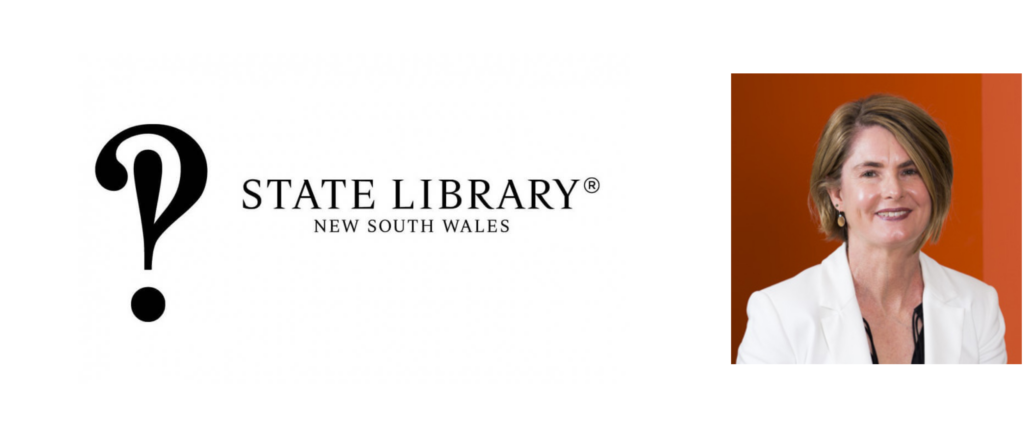
Elise Edmonds of the State Library of New South Wales kindly took the time to answer questions from Sara Brumfield of FromThePage, and discussed their project and experience using the platform.
Elise Edmonds is the Senior Curator of the State Library of New South Wales.
First, tell us about your documents.
We currently have 4 archival collections on FromThePage.
Records of male and female convicts transported to Van Diemen's Land [Tasmania], 1820 – 1852. These are convict indents (indentures) which record the details of when and where the convicted person was born, the crime committed which resulted in transportation, general personal demeanour and physical descriptions – important for prisoner identification prior to the invention of photography and the prisoner mugshot.
Sydney Female Refuge Society records (minute books)
Established in 1848 to provide a home for women escaping from prostitution and for young unmarried girls who fell pregnant, the Refuge’s three 'minute books' have recently been digitised. The refuge was established due to concerns at the level of pregnancies outside marriage and resulting from prostitution.
Francis Forbes - Correspondence relating to the Sudds, Thompson, and Robison cases, ca.1824-1830
In 1826 Sydney, soldiers Joseph Sudds and Patrick Thompson deliberately committed theft in the expectation that they would be transported, a fate they believed to be preferable to continued service in the army in New South Wales. Governor Ralph Darling commuted their sentence to a flogging and assignment of seven years hard labour in the chain gang. This collection includes reports, notes and correspondence with and from Francis Forbes, the first Chief Justice of the Supreme Court of NSW.
Miles Franklin diaries and personal papers
One of Australia’s most famous writers and feminists, Miles Franklin is best known for her novel My Brilliant Career, published in 1901. The State Library hold her papers and personal diaries, which she dutifully kept from 1909 until her death in 1954 and provide some of the greatest insights into her life. These diary pages reveal the every day; the moments of joy and the many disappointments of one of the great writers of the twentieth century.
What are your goals for the projects?
We added these collections last year, with several aims – we were keen to engage online volunteers with these collections, particularly during the various Covid-19 lockdowns. As we couldn’t have our regular onsite volunteers work with us, having an easy online transcription platform accessible really helped us to continue to maintain an engaged online volunteer community with our collections.
We were also trialling FTP to see if it will work for us – testing the workflows and how it will integrate with our Library systems. Thus far, we have been very happy with the platform.
The other goal of course, was to have transcriptions completed for our collections. We are very excited that most collections have been completed, with just a bit of QA still required for one set of records. Having transcriptions available for these significant collections means that researchers will be able to easily access and interrogate these records.
How are you recruiting or finding volunteers/collaborators?
Whilst the Library has been transcribing collections in one way or another since the 1990s, transferring to this new platform has provided us with the perfect opportunity to reach out to new audiences.
When we loaded these four collections as part of our pilot program, we promoted them to our regular Library volunteers and across our social media platforms. We were also able to promote the project via a couple of radio interviews as well. We intend to do more intensive promotion once we transition to the FTP online later in the year.
Can you share your experience using FromThePage?
We have had a really positive experience. We really value the personal touch - the one-to-one meetings that we have had remotely with Sara and Ben and their assistance with answering all of our questions. We are looking to do some customisation work with FromThePage which will enhance the user experience for all contributors platform-wide. The platform is really easy to use, and our volunteers seem quite happy to go off and work on the projects without too much intervention from us.
How does FromThePage & crowdsourcing fit with special collections and archives?
Many of our volunteers have been diligently working on transcription projects for some 20 years – having transcriptions for some of our most significant manuscript collections has been extremely valuable for researchers and Library staff, allowing the interrogation of large archival collections in an efficient way. Crowdsourcing has allowed us to harness the enthusiasms of digital volunteers, and the outcomes of these projects have proved to be mutually beneficial to both parties in achieving objectives of deeper public engagement with the collections and for the Library to build ongoing relationships with volunteers and establish a greater understanding of their interests, habits, and motivations for supporting the Library. We’re looking forward to engaging with our digital volunteers using the various communication tools provided as part of the FromThePage platform.
Anything else you'd like to tell us?
The Library has a range of digital volunteer projects including Amplify: a crowdsourcing platform where libraries can publish digital audio materials from their collections, paired with machine-generated transcripts.
Do you want your records digitized? Schedule a call with Ben and Sara.



